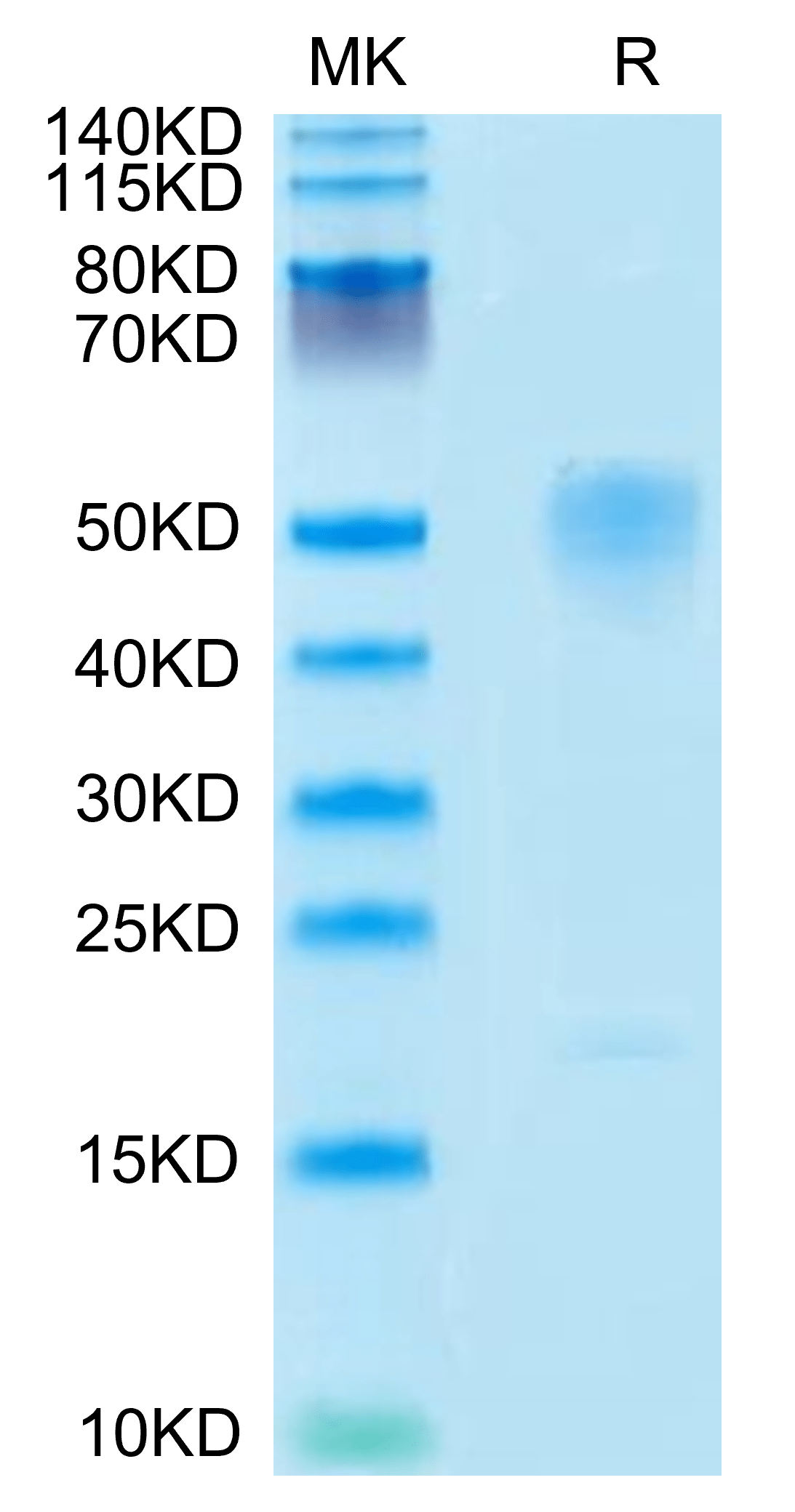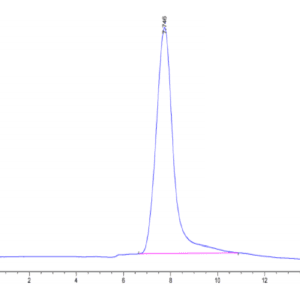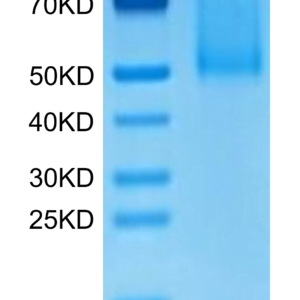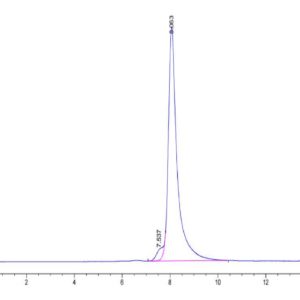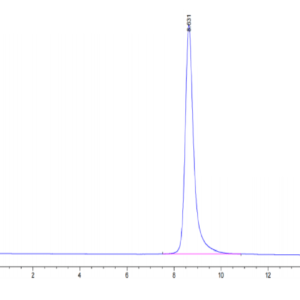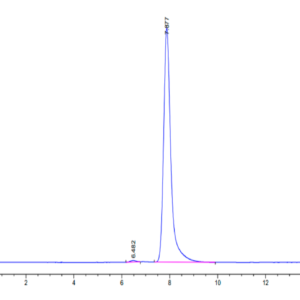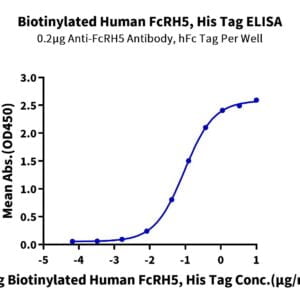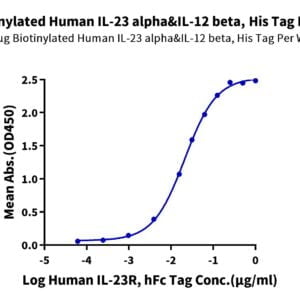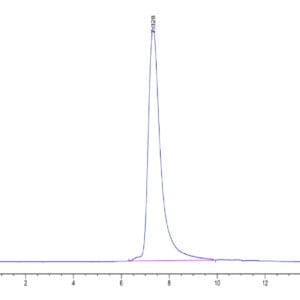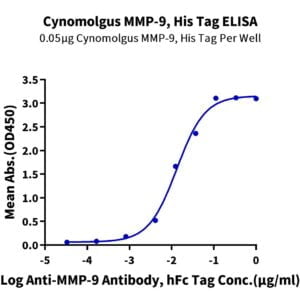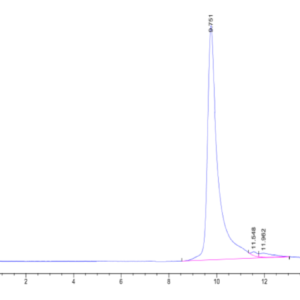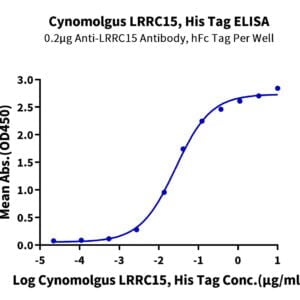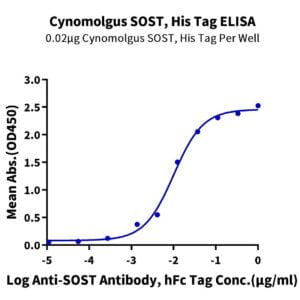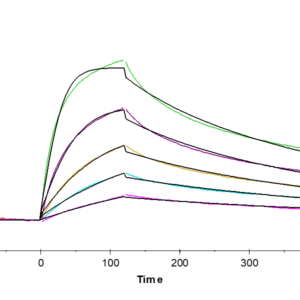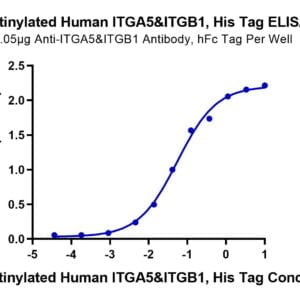| Weight | 1 lbs |
|---|---|
| Dimensions | 9 × 5 × 2 in |
| accession | P14220 |
| express system | HEK293 |
| product tag | C-His |
| purity | > 95% as determined by Tris-Bis PAGE |
| background | Granulomatosis with polyangiitis (GPA) presents a wide spectrum of manifestations from the common respiratory symptoms to infrequent neurological and cardiac complications. The challenge in diagnosis and management makes the rapidly progressive disorder one of the most challenging dilemmas in clinical medicine.The ultimate goal is an improved prognosis through outcome measures which assesses the disease control with minimal adverse effects of intensive immunosuppressive regimens, an integral part of the clinical approach to improve the quality of life of GPA patients. |
| molecular weight | The protein has a predicted MW of 12.4 kDa. Due to glycosylation, the protein migrates to 47-55 kDa based on Tris-Bis PAGE result. |
| available size | 100 µg, 500 µg |
| endotoxin | Less than 1EU per μg by the LAL method. |
Mouse GPA Protein 3749
$270.00 – $900.00
Summary
- Expression: HEK293
- Pure: Yes (SDS-PAGE)
- Amino Acid Range: Met1-Val108
Mouse GPA Protein 3749
| protein |
|---|
| Size and concentration 100, 500µg and lyophilized |
| Form Lyophilized |
| Storage Instructions Valid for 12 months from date of receipt when stored at -80°C. Recommend to aliquot the protein into smaller quantities for optimal storage. Please minimize freeze-thaw cycles. |
| Storage buffer Shipped at ambient temperature. |
| Purity > 95% as determined by Tris-Bis PAGE |
| target relevance |
|---|
| Granulomatosis with polyangiitis (GPA) presents a wide spectrum of manifestations from the common respiratory symptoms to infrequent neurological and cardiac complications. The challenge in diagnosis and management makes the rapidly progressive disorder one of the most challenging dilemmas in clinical medicine.The ultimate goal is an improved prognosis through outcome measures which assesses the disease control with minimal adverse effects of intensive immunosuppressive regimens, an integral part of the clinical approach to improve the quality of life of GPA patients. |
| Protein names Glycophorin-A (CD antigen CD235a) |
| Gene names Gypa,Gypa |
| Protein family Glycophorin-A family |
| Mass 10090Da |
| Function Component of the ankyrin-1 complex, a multiprotein complex involved in the stability and shape of the erythrocyte membrane. Glycophorin A is the major intrinsic membrane protein of the erythrocyte. The N-terminal glycosylated segment, which lies outside the erythrocyte membrane, has MN blood group receptors. Appears to be important for the function of SLC4A1 and is required for high activity of SLC4A1. May be involved in translocation of SLC4A1 to the plasma membrane. |
| Subellular location Membrane; Single-pass type III membrane protein. |
| Structure Homodimer. Component of the ankyrin-1 complex in the erythrocyte, composed of ANK1, RHCE, RHAG, SLC4A1, EPB42, GYPA, GYPB and AQP1. Interacts with SLC4A1; a GYPA monomer is bound at each end of the SLC4A1 dimer forming an heterotetramer. |
| Post-translational modification The N-terminal extracellular domain is heavily glycosylated on serine and threonine residues. |
| Target Relevance information above includes information from UniProt accession: P14220 |
| The UniProt Consortium |
Publications
Publications
| pmid | title | authors | citation |
|---|---|---|---|
| We haven't added any publications to our database yet. | |||
Protocols
| relevant to this product |
|---|
Documents
| # | ||
|---|---|---|
| Please enter your product and batch number here to retrieve product datasheet, SDS, and QC information. | ||
